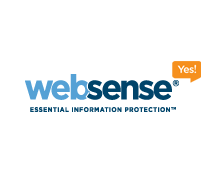When you live in your own apartment, answer to no parent about coming home at 3 a.m. and even sometimes force yourself to miss a Star Wars marathon to finish a paper, it can be frustrating to open up your laptop and open your browser only to end up staring at a “blocked webpage” notice. However, as annoying as web filtering can be, the categories blocked do not hamper our education and do serve to promote our school culture. “To help protect our community, IT employs a website filtering service on Biola’s internet connections,” reads the Network section of the Biola website.
It is vital that Biola’s Internet reflects our community standards. Our contract prohibits us from immoral sexual activity and gambling — two categories blocked in web filtering. The content blocked online is not arbitrary; it directly correlates to the values echoed around campus.
Students can easily bypass any web firewall by using 4G on their smartphones or by going to Starbucks to use the Internet — the faculty knows this. Rather than attempting to control students, web filtering prompts students to uphold their integrity while they are on campus— and it is up to the individual to do so on smartphones and off campus.
Web filtering does more than block inappropriate content like pornography; there is also a practical side to it. It acts as a safeguard by preventing access to websites that contain known malicious programs and viruses. While Student Development wants to discourage students visiting websites with inappropriate content, IT is concerned with threatening software. Web filtering prevents students from activities like piracy, which are not only inadvisable, but illegal. It is reasonable that the faculty would act to prevent Biolans using the school network for illegal activity.
We understand that web filtering can be frustrating. Broad categories like “Tasteless” and “Society and Lifestyles,” as mentioned on the Network page, may leave students unable to access web pages they consider innocuous. There will be times when students and staff do not see eye-to-eye on what should and should not be allowed — and students should see that in some cases the administration should have the final say. Students are allowed to contact IT to plead their case for a site to be blocked or unblocked.
People may be ready to cry “Big Brother” whenever web filtering comes up, but there are plenty of benefits. This is not so much a wide-scale war on search engine liberty as assistance on the way to character formation. The websites being blocked tend to be those with dehumanizing content. Viewing these websites is neither pragmatic nor edifying to personal development, and thus should be blocked.







